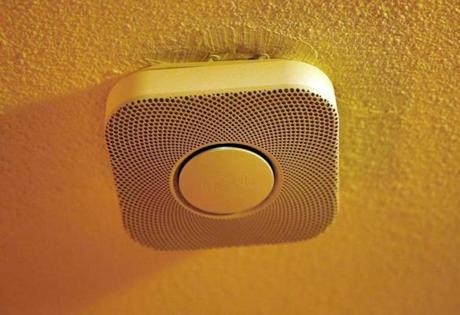Data From Your Home Could Cut Insurance Costs
- by 7wData

Insurance companies are tapping into the onboard computers of automobiles to monitor how customers drive and setting car Insurance premiums based on that information. Now, they want to do the same thing in Internet-connected homes.
Boston-based Liberty Mutual and American Family Insurance Co. of Madison, Wis., last week began offering discounts in a handful of states to customers who install wireless smoke and carbon monoxide detectors and agree to share data from the devices with insurers.
The companies have partnered with Nest, the home automation unit of Google Inc., to provide the service. The move, analysts say, signals an evolution in the use of personal data to price insurance and raises new questions about privacy in an age when more devices — from televisions to refrigerators — are collecting information on their users.
“This is the next phase in insurance,” said Laura Adams, a senior insurance analyst with the consumer website Insurancequotes.com.
Insurance companies have initially targeted fire prevention devices because fire claims are the largest category of homeowner insurance losses, accounting for about 30 percent of all losses, according to the Insurance Information Institute, a New York-based industry research group. Fire was responsible for $19 billion in property losses in the United States in 2013.
The smoke and carbon monoxide detectors will wirelessly transmit data about their status to Nest, which will inform Liberty Mutual each month whether the smoke and carbon monoxide detectors have batteries, they are properly charged, the sensors are working, and the Wi-Fi connection is good.
Customers who participate in the program will receive at least 5 percent discounts on their home insurance. For a consumer paying the national average premium of $1,034 annually, the savings would be about $52.
The program could help consumers by warning them, for example, if their smoke alarms are not working. But insurance companies also benefit by collecting data on consumer behavior that allows them to identify higher risks, such as customers who don’t keep their smoke alarms in working order, and determine how much to charge for insurance, said Birny Birnbaum, executive director at the Center for Economic Justice, a Texas consumer group focused on the insurance industry.
Insurance companies have been mining personal data to set rates for decades, which includes the controversial use of credit scores as a predictor of whether homeowners or drivers are riskier bets. But the modern home, which includes an array of so-called smart devices connected by the Internet, could provide a trove of information about personal behavior for insurers.
Liberty Mutual, like many insurers, already offers drivers a chance to save hundreds of dollars on auto insurance if they install a device in their car that tracks how far they drive, when they are on the road, and how often they step on the brakes — a telltale sign of tailgating, which increases the risk of accidents. The information from the gadget is wirelessly transmitted to the insurers.
The product was initially introduced as a way for good drivers to save money, but some companies have started using it to penalize drivers whose devices indicate they brake sharply often, speed, or drive late at night, which indicate they are more likely to get into accidents.
Insurance companies have been using data collected from cars for the past five years, Birnbaum said.
As drivers become more comfortable with these data-transmitting gadgets, industry analysts expect the market for them will grow to more than 100 million users globally in 2018 from 5.5 million at the end of 2013.
[Social9_Share class=”s9-widget-wrapper”]
Upcoming Events
Shift Difficult Problems Left with Graph Analysis on Streaming Data
29 April 2024
12 PM ET – 1 PM ET
Read MoreCategories
You Might Be Interested In
Data scientists must see the story behind the data
10 Jun, 2014Some people look at data and see integers, booleans and strings. Like Stefan, I see the stories behind the …
Sensors offer big data users an operational analytics edge
5 Jun, 2014To help provide the view, it’s installing sensors to continually report on pressure, flow and other metrics — part …
The Scientific Method is a Scientific Idea that is Ready for Retirement
27 May, 2015The scientific idea that is most ready for retirement is the scientific method itself. More precisely it is the …
Recent Jobs
Do You Want to Share Your Story?
Bring your insights on Data, Visualization, Innovation or Business Agility to our community. Let them learn from your experience.
Privacy Overview
Get the 3 STEPS
To Drive Analytics Adoption
And manage change




